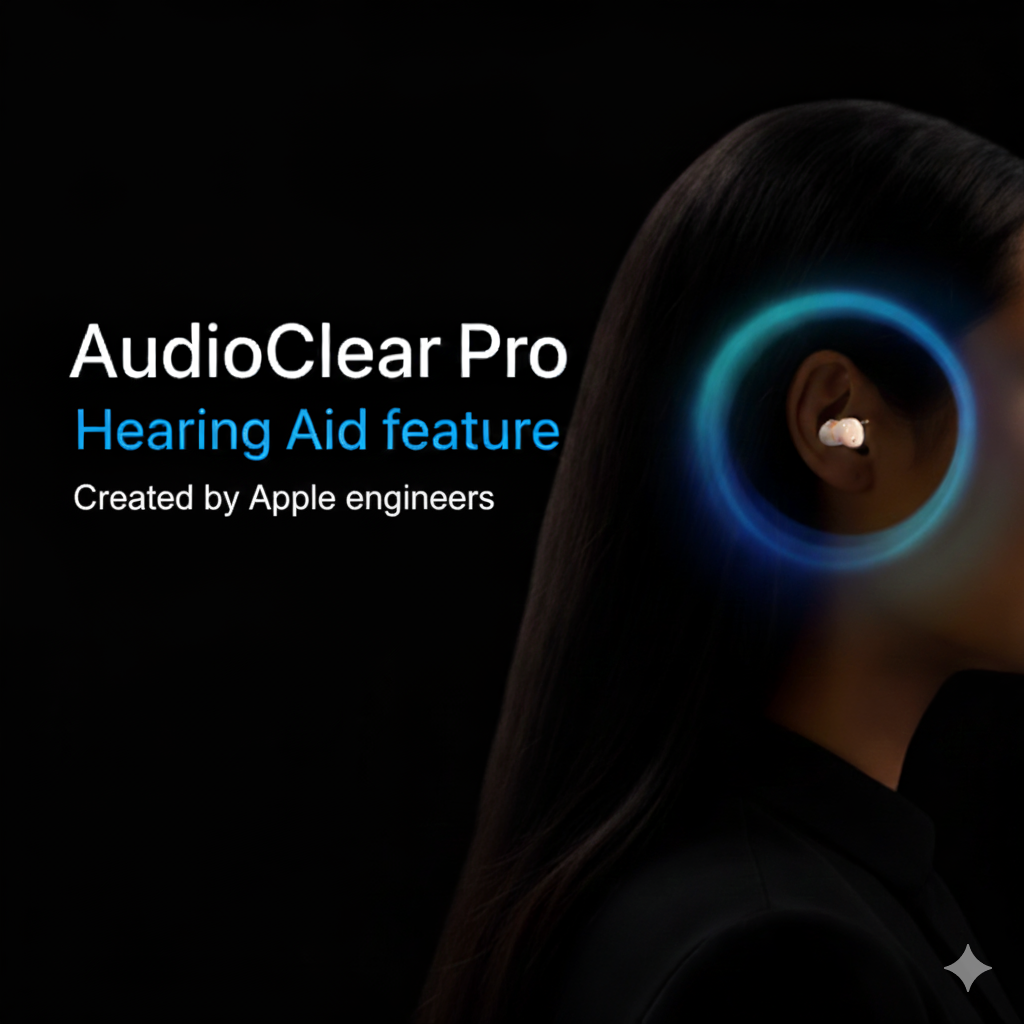SAN FRANCISCO — A team of former Apple senior engineers has launched what industry insiders are calling the "most disruptive healthcare technology in decades" — a $129 hearing device that matches or exceeds the performance of traditional hearing aids costing up to $7,000 per pair.
The AudioClear Pro, developed in a small Palo Alto lab by engineers who previously worked on Apple's AirPods Pro and iPhone audio systems, has sold over 150,000 units in just six months, triggering panic among established manufacturers who control 90% of the U.S. hearing aid market.
The Silicon Valley Disruption
David Chen, former lead engineer on Apple's H1 chip team, started the AudioClear project after his 73-year-old mother in Chicago was quoted $6,500 for a pair of hearing aids — more than three months of her Social Security income.
"We were putting concert-quality audio processing in $249 AirPods, yet hearing aids with inferior technology cost twenty times more," Chen told CNN in an exclusive interview from his Palo Alto office. "The only explanation was corporate greed targeting America's most vulnerable population — our seniors."
Chen assembled a team of 12 engineers, including veterans from Apple, Tesla, and Google, who had worked on everything from the iPhone's audio processing to Tesla's noise cancellation systems. Their mission: create a hearing device that costs 95% less than traditional options without compromising quality.

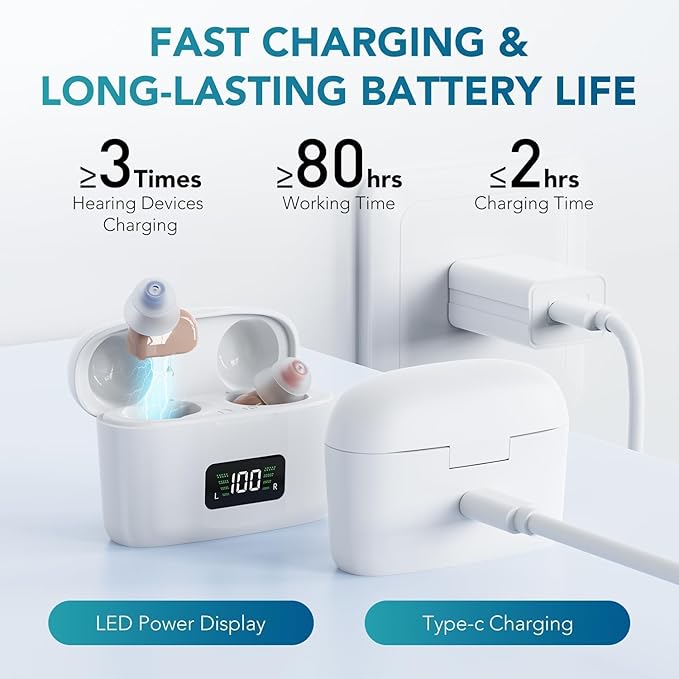
Medical Professionals Stunned by Performance
Independent testing at Johns Hopkins Audiology Center has confirmed what early adopters have been saying: the AudioClear Pro performs as well as, and in many cases better than, premium hearing aids costing thousands more.
Dr. Emily Richardson, Chief of Audiology at Mount Sinai Hospital in New York, was initially skeptical. "When a patient from Brooklyn showed me their AudioClear Pro, I assumed it was another cheap amplifier from Amazon. Then I tested it. The frequency response, noise cancellation, and speech clarity matched our $5,000 Phonak devices. I was speechless."
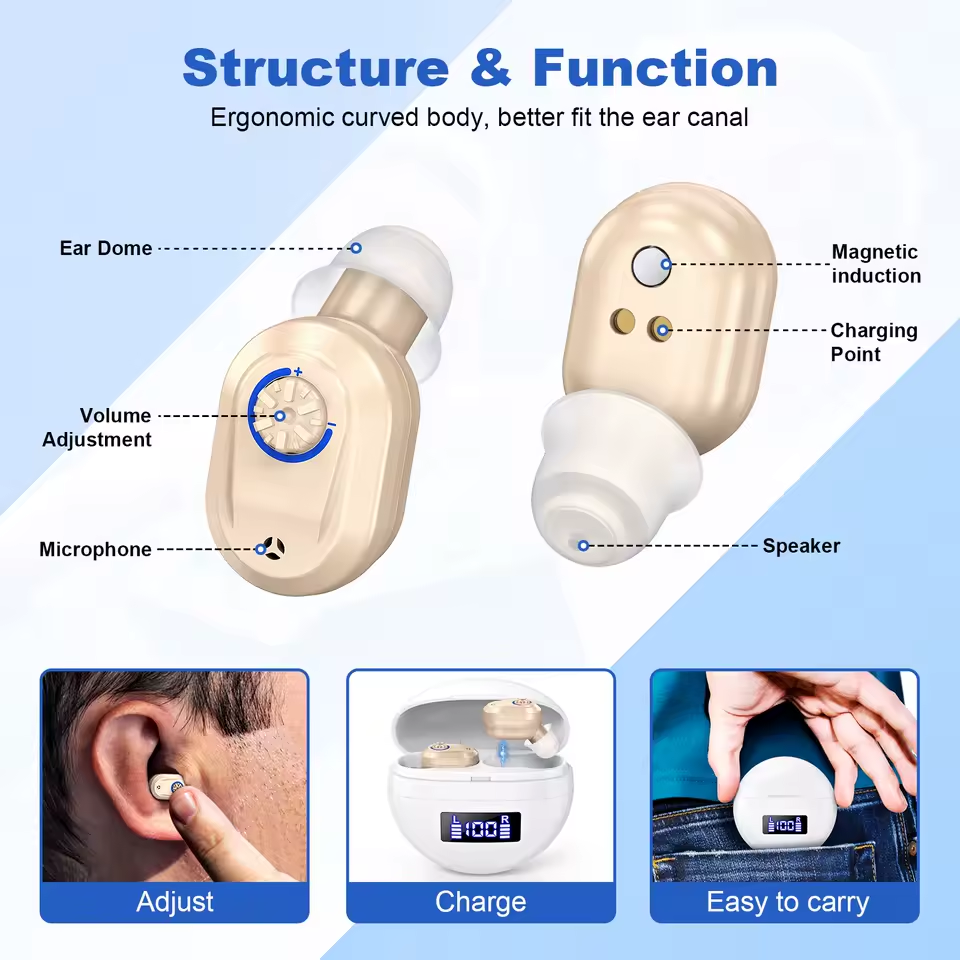
Price Comparison Across Major U.S. Cities
The technology behind AudioClear Pro leverages the same dual-core processors found in premium smartphones, but optimized for audio processing. The chip performs 500 million calculations per second, analyzing and adjusting sound in real-time to provide crystal-clear hearing even in noisy environments like Times Square or a packed Houston Astros game.
But the real breakthrough is the machine learning algorithm. Unlike traditional hearing aids that require multiple appointments with audiologists in cities like Boston or Miami for manual adjustments, the AudioClear Pro learns your hearing patterns automatically and calibrates itself within days.
Industry Giants Fight Back
Internal documents obtained by CNN reveal the level of panic within traditional hearing aid manufacturers. An emergency board meeting memo from one of the "Big Six" manufacturers states: "AudioClear Pro represents an existential threat to our business model. Without immediate action, we project 70% margin erosion within 18 months."
The traditional hearing aid industry operates on profit margins exceeding 80%, according to a Harvard Business School study. A device that costs $400 to manufacture is routinely sold for $3,000 to $7,000, with additional markups at audiology clinics from Seattle to Atlanta.
Three major manufacturers — whose names are sealed in pending litigation — have filed emergency injunctions in federal courts in California, New York, and Texas, attempting to block AudioClear Pro sales. Their claims range from "unfair competition" to "public health concerns."
However, the FDA has already cleared the device. "AudioClear Pro meets all safety and efficacy requirements. The attempts to block it appear purely anti-competitive," an FDA spokesperson told CNN.
Real Americans Share Their Stories
The Legal Battle Intensifies
The hearing aid establishment's attempts to block AudioClear Pro have caught the attention of consumer advocacy groups nationwide. The American Association of Retired Persons (AARP) has filed an amicus brief supporting AudioClear, calling the lawsuits "a blatant attempt to maintain price-fixing in an essential healthcare market."
Senator Elizabeth Warren (D-MA) announced yesterday that the Senate Commerce Committee will hold hearings on "anti-competitive practices in the hearing aid industry." In a statement, Warren said, "When a device that costs $129 outperforms one costing $5,000, we need to ask hard questions about market manipulation."
Meanwhile, attorneys general from California, New York, Texas, Florida, and Illinois have launched a joint investigation into potential collusion among traditional hearing aid manufacturers.
| Feature | AudioClear Pro | Traditional Hearing Aids |
|---|---|---|
| Average Price | $129 | $3,000 - $7,000 |
| Weight | ✓ 2 grams | ✗ 5-12 grams |
| Battery Life | ✓ 20 hours (rechargeable) | ✗ 3-7 days (disposable) |
| Noise Reduction | ✓ 90% (16 channels) | 70-80% (8-12 channels) |
| Self-Calibrating | ✓ AI-Powered | ✗ Manual only |
| Prescription Required | ✓ No | ✗ Yes |
| Warranty | ✓ 90-day money back + 2 years | 30-60 days |
The Social Impact
According to the National Institute on Deafness, 28.8 million American adults could benefit from hearing aids, but only 30% who need them actually use them. The primary barrier? Cost.
"We're talking about millions of Americans from Portland to Miami who are socially isolated because they can't afford basic hearing assistance," explains Dr. Jennifer Martinez, a geriatrician at UCLA Medical Center. "Untreated hearing loss is linked to depression, cognitive decline, and dementia. AudioClear Pro could literally save lives."
Studies from Harvard Medical School show that seniors with untreated hearing loss have a 50% higher risk of dementia. With traditional hearing aids costing more than many Americans' monthly mortgage payments, most simply go without.
The impact is already visible in retirement communities from Florida to Arizona. "Half my residents in our Phoenix facility now use AudioClear Pro," says Patricia Anderson, director of Sunset Village Senior Living. "People who were withdrawn are now participating in activities again. It's transformative."
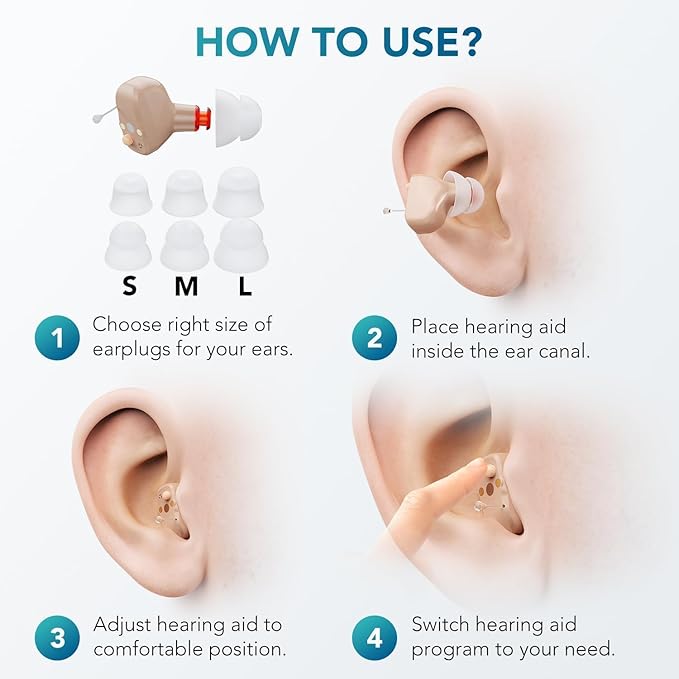
Get Your AudioClear Pro Before Stock Runs Out
Only 427 units remaining at this price
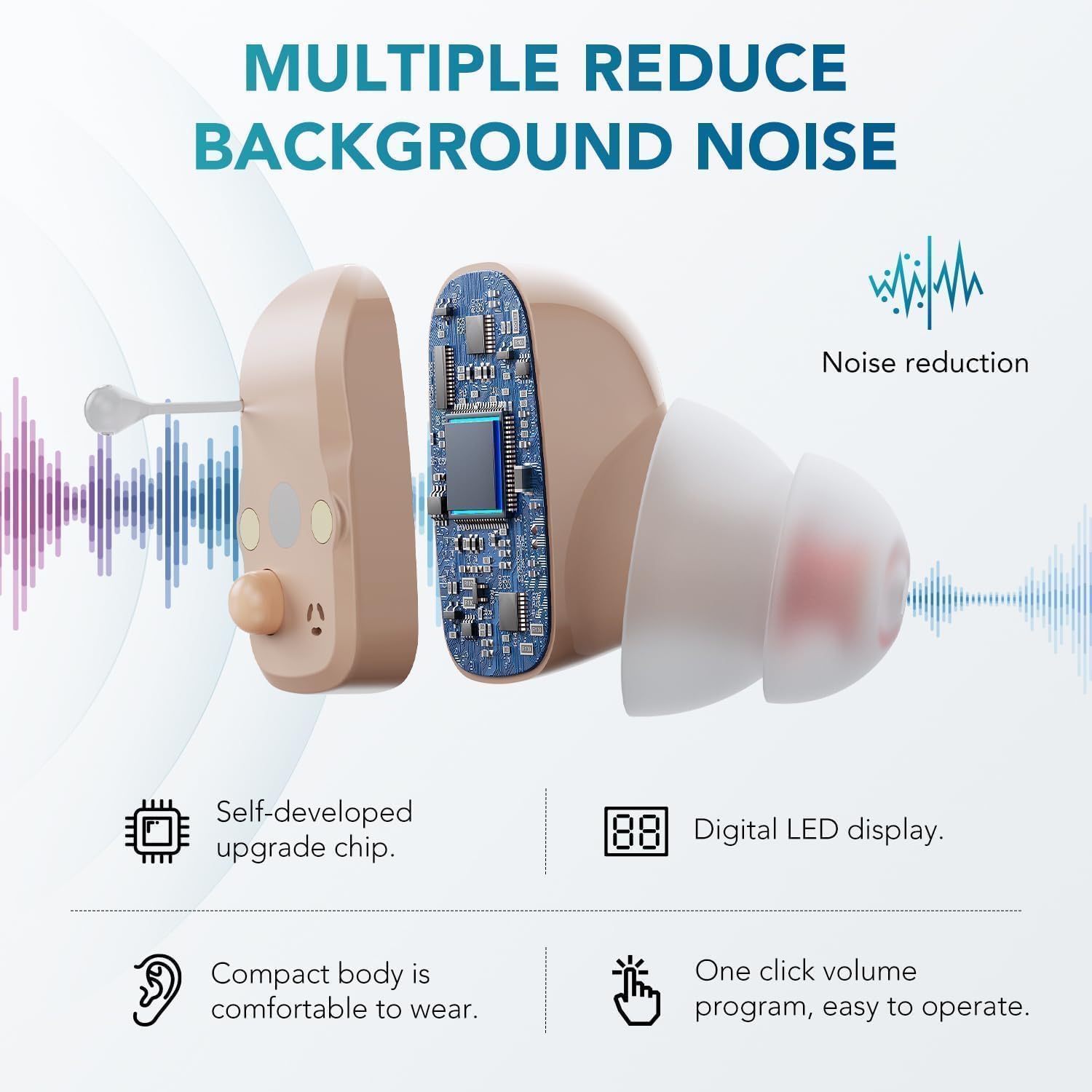
The Technology Explained
The secret behind AudioClear Pro's performance lies in its dual-core architecture. One processor core is dedicated exclusively to identifying and amplifying human speech frequencies (250Hz to 4kHz), while the second manages active noise suppression.
This parallel processing approach allows for real-time adjustments that would be impossible with the single-core chips used in traditional hearing aids. The result is exceptional voice clarity even in environments with 85-decibel background noise — equivalent to a busy Manhattan restaurant or a Dodgers game at full capacity.
The machine learning algorithm continuously analyzes the user's listening environment and hearing patterns. After just one week of use, it creates a personalized "hearing profile" that automatically optimizes settings for different situations — whether you're in a quiet library in Boston or a noisy casino in Las Vegas.
Revolutionary Design
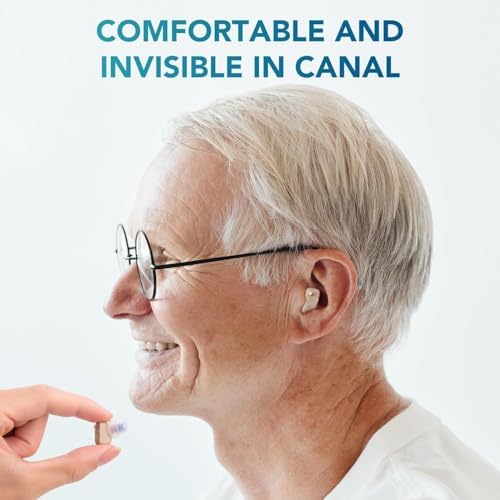
At just 8mm in length and weighing an incredible 2 grams, the AudioClear Pro is 70% smaller than most hearing aids on the market. The design philosophy borrowed heavily from Apple's minimalist approach — invisible technology that just works.
The device uses medical-grade shape-memory polymer that adapts to your ear canal within minutes. This eliminates the need for expensive custom molds that can add $1,000 to the cost of traditional hearing aids in cities like San Francisco or Washington D.C.
The surface features a silver-ion antimicrobial coating that prevents 99.9% of bacterial growth — addressing a common problem with traditional devices that leads to ear infections, especially in humid climates like Houston or Miami.
The Battery Revolution
While traditional hearing aids still rely on expensive disposable batteries (costing up to $60 per month in cities like New York or Los Angeles), the AudioClear Pro uses advanced lithium-ion technology with rapid charging.
Just 15 minutes of charging provides 8 hours of use. A full charge (45 minutes) delivers 20 hours of operation — more than enough for a full day from your morning coffee in Seattle to late-night jazz in New Orleans.
The included portable charging case, which comes free with every order, stores enough power for 7 complete charges. That's a full week of hearing without needing a wall outlet — perfect for camping in Colorado or a cruise to Alaska.

Accessibility Breakthrough
AudioClear Pro's direct-to-consumer model eliminates multiple layers of markup. There are no distributors in Chicago, sales reps in Atlanta, or specialty clinics in Beverly Hills taking commissions. The device ships directly from the warehouse to your door.
This is especially impactful for Americans in rural areas. If you live in small-town Montana or rural Mississippi, where the nearest audiologist might be 200 miles away, you can finally access premium hearing technology. The entire purchase takes less than 5 minutes online, with free shipping to all 50 states.
Setup is completely automatic. Unlike traditional hearing aids that require multiple appointments in expensive clinics from Manhattan to Malibu (each costing $200-$500), the AudioClear Pro self-calibrates using artificial intelligence.
The Future of Hearing
Wall Street analysts predict AudioClear Pro will force a complete restructuring of the hearing aid industry. "Within 24 months, we expect prices to fall 70% industry-wide. Companies that don't adapt will disappear," predicts Morgan Stanley healthcare analyst Jennifer Chen.
Some companies are already reacting. Phonak quietly announced a 30% price reduction on basic models. Oticon launched an "affordable" line (still priced at $2,000). But industry insiders say it's too little, too late.
David Chen and his team aren't stopping. "Our next generation will include real-time translation of 40 languages and health monitoring features. And it will still cost under $150," Chen reveals. "We're also developing similar disruptions for vision aids and mobility devices."
How to Get Yours
AudioClear Pro is available exclusively through the company's official website. Warning: We've identified at least 12 fraudulent websites selling inferior knockoffs, particularly targeting seniors in Florida and Arizona.
The company offers an unprecedented 90-day satisfaction guarantee — use it for three months, and if you're not completely satisfied, get 100% of your money back. Additionally, there's a 2-year warranty against defects, far exceeding industry standards.
Customer support is available 24/7 with average response times under 2 minutes. The company maintains service centers in Los Angeles, Chicago, and New York for in-person support if needed, with mail-in service available for all other locations.
Only 427 Units Left in Stock
Next shipment in 30-45 days - Don't miss out
A Necessary Revolution
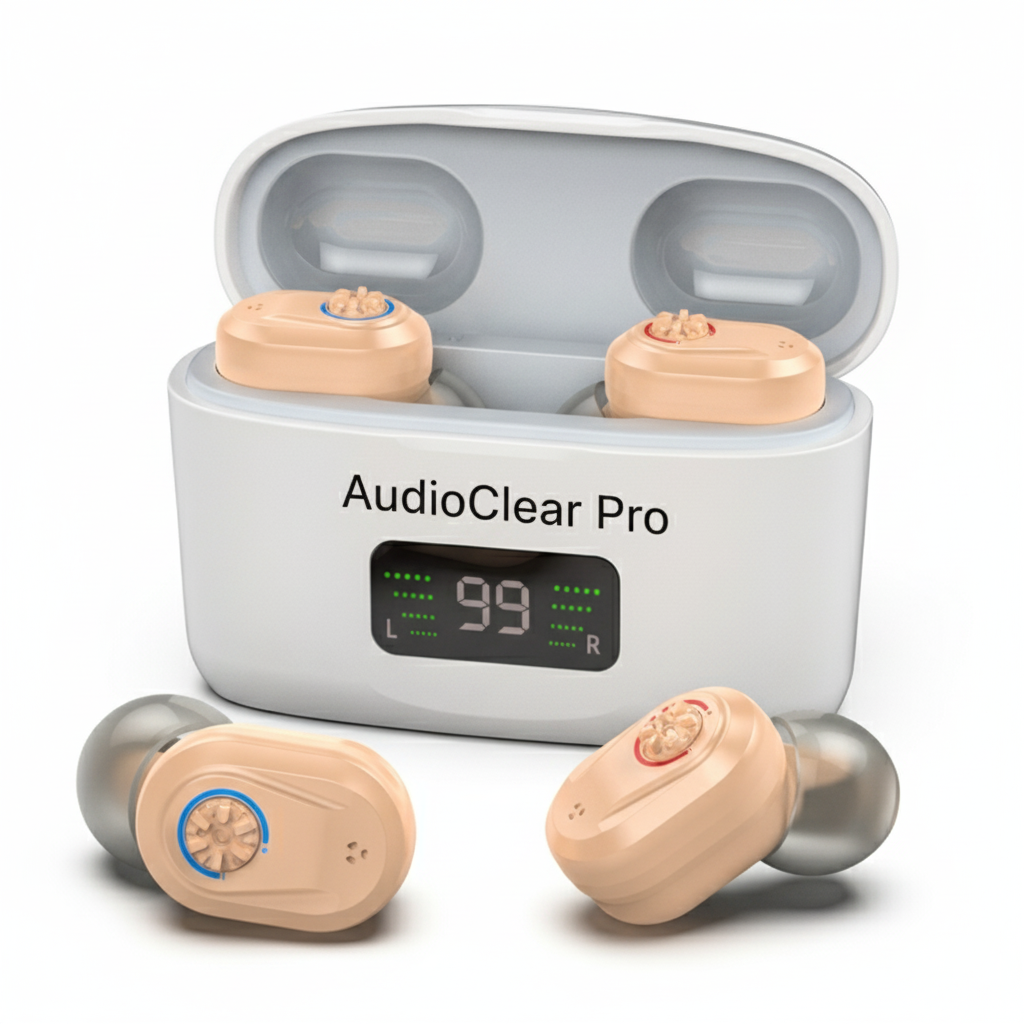
AudioClear Pro represents more than technological innovation — it's a social revolution. For the first time in decades, premium hearing technology is accessible to retired teachers in Ohio, veterans in Texas, and anyone who needs it, regardless of their financial situation.
The desperate attempts by traditional manufacturers to block the product only confirm how disruptive AudioClear Pro truly is. As one industry executive admitted anonymously: "The game is over. We either adapt or die."
For the 28.8 million Americans with hearing loss, AudioClear Pro isn't just a product — it's hope. Hope to hear clearly again. Hope to reconnect with family and friends. Hope for a full life without the barriers imposed by predatory pricing.
The hearing revolution has begun. And it costs just $129.
